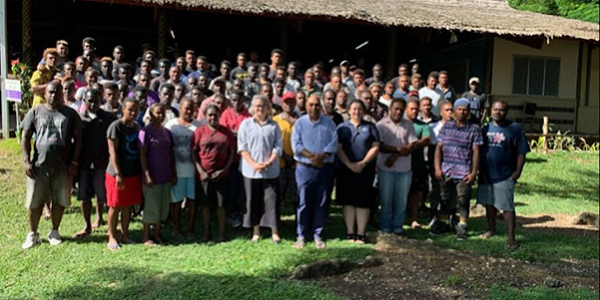While the issue is not new, the concerning conditions faced by islander seasonal workers in Australia persist, urging responsible authorities and the government to intervene.
In a recent development, seasonal workers employed under the Pacific Australia Labour Mobility (PALM) program in Australia have raised concerns about harsh working conditions imposed by their employers and supervisors, which they claim pose a threat to their health and well-being.
Reports received by this paper indicate that some seasonal workers, stationed in specific regions of Australia, have lodged complaints about being compelled to work in challenging conditions despite soaring temperatures in their respective areas.
A seasonal worker employed as a picker and planter on a farm in the outskirts of Australia, who opted to remain anonymous, shed light on the challenging circumstances faced by the workers.
“Yes, we are working too hard, and our employers and supervisors have not been friendly. We are forced to work relentlessly, even in extreme weather conditions,” the worker disclosed to this paper.
Acknowledging the financial imperative of “no work, no money,” the worker expressed the dilemma faced by the laborers.
“We understand the whole story – no work, no money – a common phrase used by our supervisors and bosses. However, we have no option but to sacrifice ourselves, work tirelessly every day,” he adds.
While the workers recognize the economic necessity of their employment, sending money back home to support their families and contribute to various purposes, they also highlight the adverse impact on their health.
“Concerning our health afterward is an issue also,” the worker added, underscoring the potential long-term consequences of these challenging work conditions.
The concerned worker emphasized the need for responsible authorities to take this matter seriously, as it could have a detrimental impact on the well-being of individual seasonal workers.
The call for intervention and consideration of the workers’ welfare comes as they navigate demanding work environments to fulfill their responsibilities and financial obligations.
As the concerns of seasonal workers gain attention, it remains to be seen how authorities will respond to ensure the fair treatment and safety of these workers who play a crucial role in the agricultural workforce of Australia.
The situation will undoubtedly prompt discussions about the balance between economic necessity and the well-being of the labor force involved in such critical programs.
However, the Ministry of Foreign Affairs and External Trade stated that complaints of harsh working conditions by Solomon Islanders working under the PALM scheme are not new.
It serves as a reminder of the challenges that workers joining the scheme would face when they sign up to work in Australia under the PALM scheme.
The Labour Mobility Unit within the Ministry of Foreign Affairs and External Trade wishes to remind and advise Solomon Islands workers that, while frustrations are bound to happen, they are reminded of the importance of dialogue with their employers and to seek help and assistance from Solomon Islands Country Liaison Officers based in Australia if they have issues and complaints.
LUMU said workers are also reminded of the government’s official points of contacts in Australia to assist them, that is the Solomon Islands High Commission in Canberra and the Brisbane Consulate Office.
The LMU often emphasized the challenges with the working conditions and the expectations of the workers during their interviews and pre-departure trainings, and therefore they are aware of what they have signed up for.
By ULUTAH GINA
Solomon Star, Gizo









